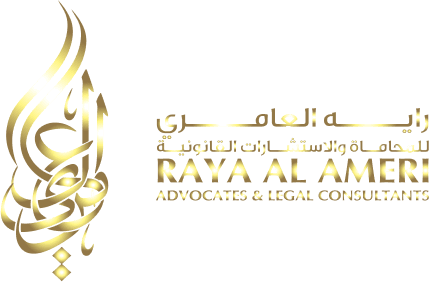UAE Commercial Invoice Attestation: Deadline and Penalties
In the United Arab Emirates (UAE), the Cabinet Resolution No. (38) of 2022 has mandated the attestation of commercial invoices for imported goods valued at 10,000 AED or more. This new regulation, which comes into force on September 15, 2023, aims to ensure transparency and regulatory compliance in the country’s import processes. Failure to adhere to the requirements of this resolution can result in financial penalties and potential disruptions to commercial invoice operations.
Introduction
1.1 The importance of commercial invoice attestation
The attestation of commercial invoices holds considerable importance in the UAE’s import landscape. It serves as a means to ensure accurate record-keeping, transparency, and regulatory compliance. By attesting commercial invoices, importers provide a verified account of the value of imported goods, facilitating the smooth flow of trade and mitigating potential risks associated with fraudulent practices.
1.2 Overview of the law of inheritance in the UAE
In addition to the commercial invoice attestation requirement, understanding the broader legal framework in the UAE is crucial. The law of inheritance, heavily influenced by Sharia law, governs the distribution of assets and properties upon an individual’s demise. This legal framework encompasses principles such as forced heirship and testamentary freedom, which have implications for individuals and families in the country.
Understanding Cabinet Resolution No. (38) of 2022
2.1 Key requirements of the resolution
Cabinet Resolution No. (38) of 2022 mandates the attestation of commercial invoices for imported goods valued at 10,000 AED or more. This requirement applies to all importers operating in the UAE, irrespective of their industry or sector. To comply with the resolution, importers must follow the prescribed process of attestation through the Ministry of Foreign Affairs and International Cooperation (MoFAIC).
2.2 Significance of attesting commercial invoices
The attestation process ensures the accuracy and authenticity of commercial invoices. It involves verifying the details mentioned in the invoice, including the value of imported goods. This verification process aims to prevent under- or over-invoicing, which can lead to tax evasion or incorrect assessment of duties and taxes.
2.3 Linking commercial invoices and customs declarations
After attesting the commercial invoices, importers must link them with the corresponding customs declarations using the Electronic Data Exchange (EDAS) portal. This linkage is crucial for maintaining accurate and transparent records of imported goods and their associated financial transactions. Importers have a limited window of 14 days to complete both the attestation and linking processes.
Compliance with the UAE’s Commercial Invoice Attestation Deadline
3.1 Establishing an account with MoFAIC
To initiate the attestation process, importers must create accounts with MoFAIC through the EDAS portal. This account registration ensures that importers can access the required services and submit the necessary documents for attestation.
3.2 The attestation process for commercial invoices
Once the account is established, importers can proceed with attesting their commercial invoices. This process involves submitting the relevant documents, including the invoice itself and any supporting documentation, to MoFAIC through the EDAS portal. The documents undergo a verification process, and upon successful attestation, a digital stamp is affixed to the invoice.
3.3 Proper linking of attested invoices with customs declarations
After attestation, importers must ensure the correct and accurate linkage of attested invoices with the corresponding customs declarations through the EDAS portal. This step ensures that the imported goods’ value mentioned in the invoice aligns with the customs declaration, further enhancing transparency and accuracy in import records.
Penalties for Non-Compliance
4.1 Administrative fines for non-attested and unlinked invoices
Non-compliance with the commercial invoice attestation requirement can result in the imposition of administrative fines. Importers failing to attest and link their invoices within the specified timeframe may face a penalty of 500 AED per unattested or unlinked invoice. To avoid financial penalties, importers must ensure strict adherence to the attestation and linking deadlines.
4.2 Potential disruptions to import operations
Non-compliance with the commercial invoice attestation requirement can have far-reaching consequences beyond financial penalties. Importers failing to comply may face disruptions to their import operations, including delays in customs clearance, potential cargo holds, and increased scrutiny from regulatory authorities. Complying with the attestation requirement is essential for maintaining smooth import operations.
The Impact of the UAE Commercial Invoice Attestation Deadline on Businesses
5.1 Strategies for businesses to ensure compliance
To ensure compliance with the commercial invoice attestation requirement, businesses can develop robust internal processes and systems. This includes establishing clear guidelines for invoice attestation, training employees, and implementing technology solutions that streamline the attestation and linking processes.
5.2 Implications for Supply Chain Management
The commercial invoice attestation requirement has implications for supply chain management in the UAE. Importers and their logistics partners must factor in the attestation and linking process timelines, ensuring coordination to avoid any disruptions to the supply chain. Collaboration and effective communication between all stakeholders are essential for seamless operations.
5.3 The role of technology in streamlining the attestation process
Technology plays a crucial role in streamlining the commercial invoice attestation process. Automation and digitization of document submission and verification processes can significantly enhance efficiency and accuracy. Additionally, technology solutions can provide real-time tracking and monitoring of attestation statuses, aiding importers in managing their compliance obligations effectively.
The Law of Inheritance in the UAE: A Brief Overview
6.1 Sharia law and its influence on inheritance matters
In the UAE, Sharia law forms the basis for matters related to inheritance. Sharia principles govern the distribution of assets and properties among heirs, ensuring fairness and adherence to Islamic teachings. Understanding these principles is essential for individuals and families residing in the UAE.
6.2 The concept of forced heirship
Forced heirship is a key concept in the law of inheritance in the UAE. It ensures that a portion of the deceased’s estate is reserved for specific heirs, such as children and spouses, irrespective of the deceased’s wishes. Forced heirship provides financial protection and support to certain family members, aligning with the principles of Sharia law.
6.3 Testamentary freedom and its limitations
While forced heirship is a fundamental aspect of the law of inheritance, the UAE also recognizes testamentary freedom. Testamentary freedom allows individuals to distribute their assets according to their wishes through a legally valid will. However, certain limitations exist, ensuring that the rights of forced heirs are protected and that the distribution remains in line with Sharia principles.
Legal Articles on the Law of Inheritance in the UAE
To delve deeper into the law of inheritance in the UAE, several legal articles provide valuable insights. These articles explore various aspects of inheritance law, including the provisions of the UAE Personal Status Law, Federal Law No. 5 of 1985, and the role of courts in resolving inheritance disputes. Consulting these articles can provide further clarity on the legal framework governing inheritance matters.
7.1 Article 17 of the UAE Personal Status Law:
Article 17 of the UAE Personal Status Law outlines the principles of forced heirship and the entitlements of specific heirs. It emphasizes the importance of providing for family members, ensuring their financial security and well-being.
7.2 Article 1 of Federal Law No. 5 of 1985:
Article 1 of Federal Law No. 5 of 1985 provides a comprehensive overview of the law of inheritance in the UAE. It outlines the rules and regulations governing inheritance matters, including the distribution of assets, the role of legal heirs, and the importance of compliance with Sharia principles.
7.3 The role of courts in resolving inheritance disputes:
Courts play a crucial role in resolving inheritance disputes in the UAE. They provide a legal forum for parties involved in inheritance disagreements to present their cases and seek a fair and just resolution. Understanding the legal recourse available through the court system is vital for individuals navigating inheritance-related conflicts.
Seeking Legal Assistance for Inheritance Matters:
Your Path to Expert Guidance with Raya Al Ameri Advocates
8.1 The Significance of Legal Counsel in Inheritance Affairs
In the realm of inheritance matters, the intricate tapestry of legal complexities necessitates the involvement of seasoned legal professionals. When dealing with issues of succession in the UAE, consulting with lawyers specializing in UAE inheritance law becomes not just a recommendation, but a vital necessity. These legal experts are equipped to offer tailored guidance, ensuring strict adherence to the law while safeguarding the rights and interests of individuals and families involved.
At Raya Al Ameri Advocates, we understand that the world of inheritance law can be daunting, and the stakes are often high. Our team of adept legal professionals possesses a deep understanding of UAE inheritance law, allowing us to provide you with comprehensive legal support tailored to your specific needs.
8.2 The Quest for the Right Inheritance Law Attorney:
When embarking on the journey to secure legal assistance for inheritance matters in the UAE, your choice of legal counsel is of paramount importance. Here’s how you can navigate this critical decision-making process:
- Conduct Thorough Research: Delve into the backgrounds, qualifications, and track records of prospective lawyers. Scrutinize their experience in handling inheritance cases similar to yours.
- Seek Recommendations: Solicit recommendations from trusted sources, such as friends, family members, or colleagues who may have undergone similar legal processes. Word-of-mouth referrals can often lead you to lawyers with proven expertise.
- Review Legal Directories: Legal directories and professional networks often provide valuable insights into the reputations and capabilities of lawyers specializing in inheritance law. These directories can serve as a valuable starting point in your search.
8.3 Leveraging Legal Resources and Databases:
In the pursuit of a well-informed approach to inheritance matters, knowledge is power. Fortunately, a wealth of legal resources and databases is at your disposal. These resources include:
- Legal Publications: Access authoritative legal publications that delve into the intricacies of UAE inheritance law. They often provide comprehensive insights and case studies that can enhance your understanding.
- Online Databases: Explore online legal databases where you can find statutes, regulations, and legal precedents related to inheritance law in the UAE. These databases can serve as valuable reference materials.
- Official Government Websites: Government websites, including those of relevant UAE authorities, may offer official documents and guidelines pertaining to inheritance matters. These can be indispensable sources of information.
Conclusion
Compliance with the UAE’s commercial invoice attestation requirement is essential for importers operating in the country. Failure to adhere to the attestation and linking deadlines can result in financial penalties and potential disruptions to import operations. Additionally, understanding the broader legal framework, including the law of inheritance, is crucial for individuals and families residing in the UAE. By ensuring compliance with the law and seeking legal assistance when needed, individuals can navigate inheritance matters effectively and protect their rights and interests.
In the intricate landscape of inheritance law, your choice of legal counsel and your access to resources can make all the difference. Raya Al Ameri Advocates stands ready to be your trusted partner on this journey, providing the guidance, expertise, and support needed to navigate the complexities of UAE inheritance law.
Contact us today to explore how our experienced legal team can assist you in securing your rightful inheritance and protecting your family’s interests. Your peace of mind is our priority.

